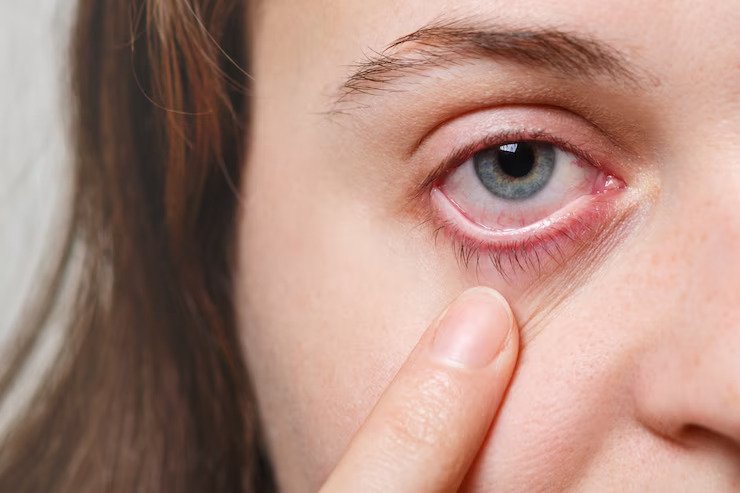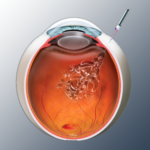What is diabetic retinopathy?
Diabetic retinopathy is an eye condition that can cause vision loss and blindness in people who have diabetes. It affects blood vessels in the retina (the light-sensitive layer of tissue in the back of your eye).


What are the risk factors of diabetic retinopathy?
The risk of developing the eye condition can increase as a result of:
- Having diabetes for a long time.
- Poor control of your blood sugar level.
- High blood pressure.
- High cholesterol.
- Obesity
- Tobacco use.
What are the symptoms of diabetic retinopathy?
You might not have symptoms in the early stages of diabetic retinopathy. As the condition progresses, you might develop:
- Spots or dark strings floating in your vision (floaters)
- Blurred vision
- Fluctuating vision
- Dark or empty areas in your vision
- Vision loss
When to see an eye doctor?
Careful management of your diabetes is the best way to prevent vision loss. If you have diabetes, see your eye doctor for a yearly eye exam with dilation — even if your vision seems fine.
How will you diagnose diabetic retinopathy?
Diabetic retinopathy is best diagnosed with a comprehensive dilated eye exam. During the exam, your eye doctor will look for abnormalities in the inside and outside parts of your eyes.
If any problems in your retina,he/she will perform :
- Fluorescein angiography
- Optical coherence tomography (OCT).


What are the Complications of diabetic retinopathy?
Diabetic retinopathy involves the growth of abnormal blood vessels in the retina. Complications can lead to serious vision threatening problems like
- Vitreous hemorrhage
- Retinal detachment
- Glaucoma
- Blindness
How will you diagnose diabetic retinopathy?
In the early stages of diabetic retinopathy, your eye doctor will probably just keep track of your eyes by comprehensive dilated eye exam.
In later stages, it’s important to start treatment right away — especially if you have changes in your vision
Injections
Medicines called anti-VEGF drugs can slow down or reverse diabetic retinopathy. Other medicines, called corticosteroids, can also help.

Laser treatment(pan retinal photocoagulation).
To reduce swelling in your retina, eye doctors can use lasers to make the blood vessels shrink and stop leaking.

Eye surgery
If your retina is bleeding a lot or you have a lot of scars in your eye, your eye doctor may recommend a type of surgery called a vitrectomy.
You may need one or more treatment modalities depending upon the stages of diabetic retinopathy .

What can I do to prevent diabetic retinopathy?
- Keeping your blood sugar under control.
- Monitoring your blood pressure.
- Maintaining a healthy diet.
- Exercising regularly.
Getting an eye exam at least once a year.
Pay attention to vision changes. Contact your eye doctor right away if your vision suddenly changes or becomes blurry, spotty or hazy.
Remember, diabetes doesn’t necessarily lead to vision loss. Taking an active role in diabetes management can go a long way toward preventing complications.


